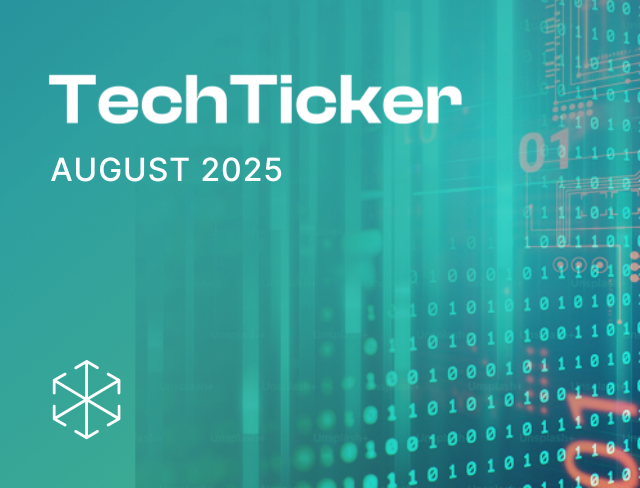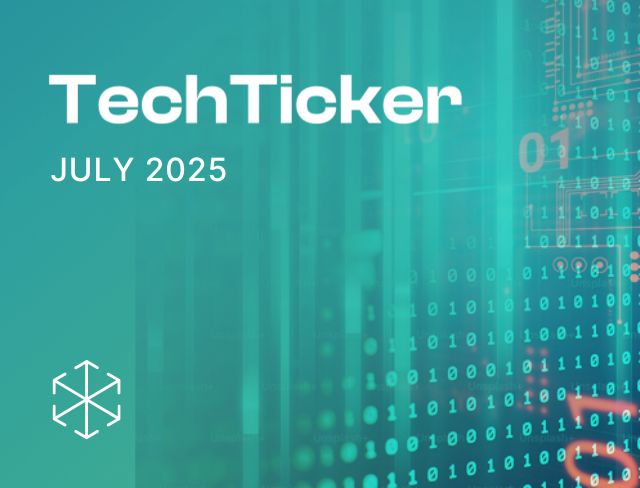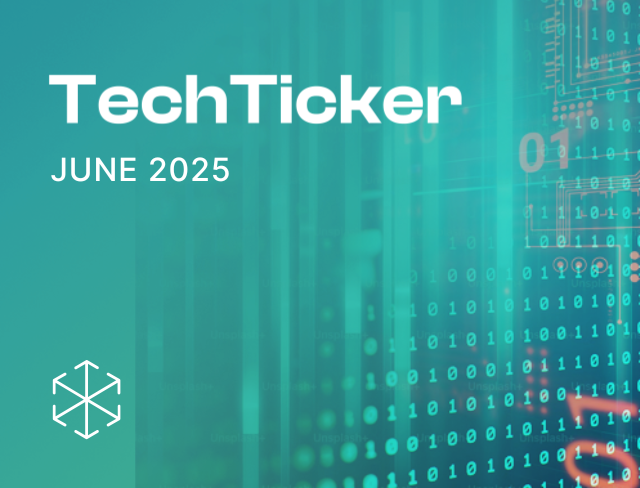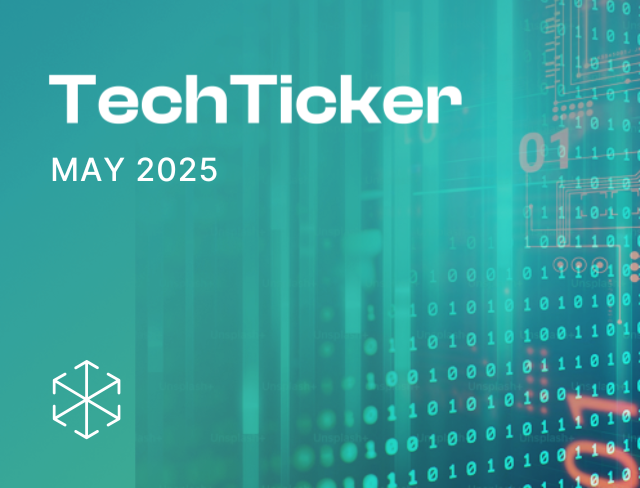Hi there! Welcome to our monthly Tech Ticker with developments we found interesting in the tech-law and policy space.
Spotlight
As part of his Independence Day speech, Indian Prime Minister Narendra Modi launched the National Digital Health Mission, aimed at digitising the entire Indian healthcare ecosystem. Soon after, the National Health Authority released a Draft Health Data Management Policy soliciting stakeholder comments. The policy laid down the proposed privacy framework for collecting, storing, using, and sharing of health data under the NDHM.
Meanwhile, NITI Aayog released a working document titled ‘Responsible #AIforAll’ for stakeholder feedback. The document discusses the possible harms arising from using AI systems, and ethical and legal frameworks to mitigate them. Also, the AI Standardisation Committee of the department of telecommunications, ministry of communications, released the ‘Indian Artificial Intelligence Stack’ inviting comments by 03 October 2020. Among other things, the document proposes six layers for all AI-related applications–infrastructure, storage, compute, application, data/information and security/governance layers.
After undertaking an unprecedented process of consultation from January 2015, the government of India released the National Education Policy in 2020. Among many other proposals, the NEP wants to promote education related to emerging technologies such as AI and ML.
120 prominent Indian software product companies reportedly urged the government to remove TDS obligations on local software products, and do away with requirements relating to Softex forms (forms used to assess the value of a software good or service each time it is exported out of India) to increase ease of doing business for Indian companies.
The MeitY banned another 118 apps of Chinese origin under the Information Technology Act, 2000, in the interest of Indian sovereignty and integrity, defence, security of state and public order. This brings the total number of Chinese apps banned to 224 along with the previously proscribed apps, following a border stand-off between the two countries.
Data management
The MeitY is reportedly working on a New Data Centre Policy which will contain standards for Indian data centres based on global best practices. Meanwhile, the NITI Aayog released a draft of the ‘Data Empowerment and Protection Architecture’ for comments by 01 October 2020. The DEPA, an initiative previously proposed by iSPIRT (a think-tank for Indian software products industry), provides for a user-centric model of data sharing based on consent and is part of the ‘IndiaStack’.
E-Pharmacy
Reliance Industries Limited bought a 60% stake in online pharmacy Netmeds for INR 6.2 billion as it forayed into India’s fast-growing e-pharmacy market. Additionally, Amazon rolled out online pharmacy services in Bangalore to enable consumers to order both prescription and over-the-counter based medicines, basic health devices and Ayurveda medication from certified sellers, among other things.
Online content
The Internet and Mobile Association of India (an industry body that represents OTT players) reportedly proposed an ombudsman model to the information and broadcasting ministry, to facilitate OTT self-regulation. Soon after, the IAMAI unveiled the ‘universal self-regulation code’ adopted by 15 Indian online curated content platforms, including Netflix, Amazon Prime, Zee5, etc. Apart from prescribing a framework for age classification, content description for titles, the code relies on each platform to create an internal grievance redressal committee and an advisory panel to entertain complaints, appeals and escalations raised by consumers. In other news, a public interest litigation was filed in the High Court of Madras urging for a film-certification-board style oversight body for social media and streaming platforms. Meanwhile, Netflix hit a legal wall when local courts in Hyderabad and Bihar reportedly restrained the streaming platform from broadcasting its investigative docuseries, granting relief to Indian billionaires Subrata Roy and Ramalingam Raju. On the other hand, the Delhi High Court dismissed a similar petition against Netflix seeking pre-screening of the docuseries and refused to interfere with OTT regulations.
Fintech and digital payments
After seeking public comments, the RBI released the framework to recognise new pan-India umbrella entities for payment systems in India. These umbrella entities will be allowed to set-up, manage, and operate their own payment infrastructures and roll out new digital payment products in the Indian market. This step was ostensibly taken to reduce the concentration risk posed by the National Payments Corporation of India, which handles close to one half of India’s digital payment transactions today. However, experts argue that this may not be the best way forward, and an alternative standard setting body for digital payments may resolve the RBI’s concerns more effectively.
The RBI taking a step towards self-regulation in the digital payments’ industry, released a draft framework to recognise a self-regulatory organisation, soliciting consumer feedback. The SRO will be responsible for setting and enforcing rules for payment systems operators in India, and will work towards establishing minimum benchmarks and standards in the payments space along with acting as a two-way communication channel between the RBI and industry.
In a bid to internationalize Indian payments products and services, the NPCI launched its wholly owned subsidiary – ‘NPCI International Payments Ltd’ which is tasked with popularising and exporting the NPCI’s offerings, including the Unified Payments Interface payment system, and their supporting technology to the international markets.
In other news, the Competition Commission of India dismissed a complaint against WhatsApp which alleged that the company abused its dominant position to enter the digital payments market, by bundling its payment services with its messaging app. The commission observed that WhatsApp Pay was available to less than 1% users in India and that any actual misconduct was not yet seen.
New at Ikigai
As industrial and retail activity and cross-border trade and commerce picked up, new warehousing models emerged in India. In the past month, Sayanhya authored a series of articles explaining the most prominent warehousing models in India and the key commercial terms in a warehouse agreement executed between the operator of the warehouse and the user. He also unpacked the technology and policy opportunities that are likely to drive the next global auto-revolution in Electronic Vehicles.
We have all complained about legal documents being hard to navigate. Hopefully this will change in the near future – watch Anirudh deliver a passionate TEDx Talk where he explains the ways in which such contracts can be turned into ‘user friendly’ and ‘delightful’ documents for end users. Let us know what you think!
We will come back to you with more in October!









